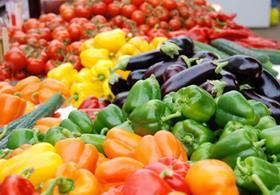
The uncertainty around Brexit hasn't diminished the appetite for merger and acquisition activity in the food and drink industry, according to a new analysis.
The latest research from business and financial adviser Grant Thornton UK shows that M&A activity in the food and beverage sector remained steady in the third quarter of 2018, despite predictions companies might batten down the hatches in the build up to Britain's exit from the EU in March 2019.
Grant Thornton found that 48 deals took place in the food and beverage sector in the third quarter of this year, a small decrease of 7.7 per cent compared to the previous quarter's 52 transactions.
Despite fewer deals in the latest quarter, deal value showed a slight increase of 1.5 per cent compared to the previous quarter. However, at £2.9 billion, cumulative deal value for 2018 to date was significantly lower than 2016 and 2017, which were £6.2bn and £13.7bn respectively, a fact that has been put down to the lack of 'mega deals' in 2018.
Domestic deals continue to account for the majority of transactions in 2018, with the third quarter seeing nearly 60 per cent domestic deals. There was a slight pick-up in UK/ Irish companies acquiring overseas (11 deals), compared to nine transactions of an inbound nature.
Trefor Griffith, head of food and beverage at Grant Thornton UK, said: “Despite a slight decrease, the level of deal activity this quarter has followed the trend that we usually see over the summer months, where deal activity tends to slow. However, M&A appetite in the sector remains strong despite theongoing uncertainty caused by Brexit.
“With Brexit edging ever closer, the UK government and businesses are increasingly focused on how international trade will change once the UK leaves the European Union. There are many unknowns around impacts on supply chains as a result of security issues and customs controls and additional widespread concerns around delays at borders, particularly for short-shelf life goods.
“With uncertainty the buzzword, we would firstly encourage all businesses to implement a Brexit plan and ensure that a key aspect of this is to achieve Authorised Economic Operator (AEO) accreditation. Trusted traders are a central part of the government’s Brexit white paper, in a bid to ensure that cross-border trade remains as frictionless as possible. Worryingly though, the UK is a long way behind other EU countries in the number of businesses with AEO accreditation. The UK has just over 10 per cent of the volume seen in Germany, showing the need for a strong push from UK businesses to achieve this.
“Achieving AEO status is a ‘no-regrets steps’ as, irrespective of the Brexit outcome, many of the benefits are still available. AEO status can equip businesses to deal with potential issues that may arise in the aftermath of Brexit, particularly the concerns on the delays in clearing ports.
“No one currently knows what Brexit will bring but all that business can do is plan and prepare as best as possible and take steps now to help mitigate known risks.”






No comments yet